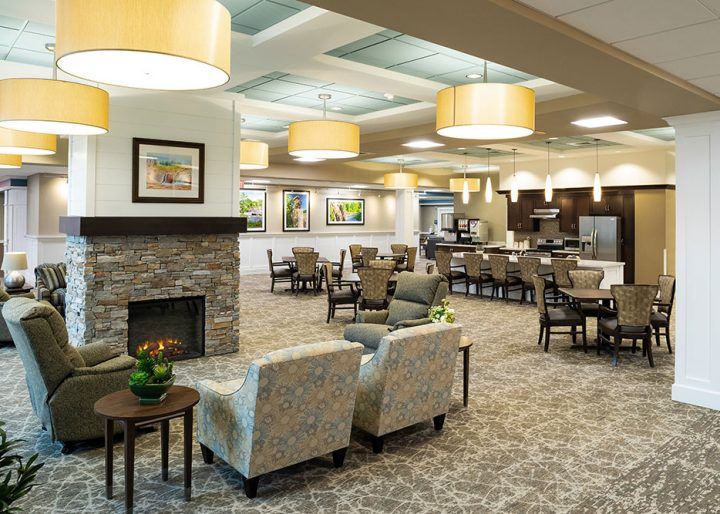Compare Memory Care options for families seeking compassionate support.
Compare Memory Care options for families seeking compassionate support.
Blog Article
Exactly How Aided Living Facilities Enhance Lifestyle for Those With Dementia
Assisted living centers play a pivotal duty in enhancing the lifestyle for individuals with mental deterioration by carrying out customized care strategies that deal with their distinct demands. These atmospheres incorporate structured tasks with psychological assistance, fostering a feeling of neighborhood while guaranteeing safety and security and self-reliance. The assimilation of appealing programs and family members participation further enhances the residents' experience. Yet, the complexities of dementia treatment remain to progress, motivating a more detailed exam of how these centers adapt and introduce to meet the difficulties encountered by residents and their households. What implications does this have for future care designs?
Personalized Treatment Plans
(Dementia Care Charlotte)In a lot of cases, individuals with mental deterioration need customized support that addresses their special demands and choices. Individualized treatment strategies are essential in assisted living settings, as they ensure that each resident receives suitable attention and solutions. These plans are established collaboratively, involving health care specialists, caregivers, and relative to create an extensive introduction of the person's clinical history, cognitive abilities, and individual passions.
A well-structured individualized treatment strategy normally consists of certain goals associated to health and wellness management, daily activities, and social involvement. It makes up the person's cognitive decline while promoting freedom and self-respect. Routine evaluations and updates to the care plan are essential, as they enable alterations based on the local's evolving problem and choices.
Key components of these strategies commonly include medication monitoring, behavioral support approaches, and dietary guidelines customized to the individual's needs (Memory Care). By focusing on personalized treatment, assisted living centers can promote a supportive setting that improves the top quality of life for people with dementia, inevitably adding to their overall well-being and joy. This individualized strategy appreciates the uniqueness of each homeowner, ensuring they obtain the caring treatment they call for

Involving Activities and Programs
Involving locals in purposeful activities and programs is critical for improving the top quality of life for individuals with mental deterioration. These activities not only give pleasure yet also promote cognitive feature and promote social interaction, which can minimize feelings of isolation usually experienced by locals.

Furthermore, tailored programs are essential in ensuring that each resident's unique preferences and capabilities are acknowledged. This customized strategy urges participation, enhances self-esteem, and provides a feeling of achievement.
Additionally, normal evaluations of citizens' rate of interests can aid personnel customize and adapt tasks to much better match advancing needs. By focusing on interesting tasks and programs, aided living centers can substantially enhance the general experience and emotional health of people coping with dementia.
Safe and Supportive Environment
Developing a risk-free and helpful environment is essential for people with dementia, as it directly influences their well-being and lifestyle. Aided living facilities are designed with details functions that promote safety and security while cultivating a sense of safety and security and convenience. These atmospheres prioritize accessibility, with designs that reduce complication and motivate independence, permitting locals to browse their surroundings more quickly.
Safety actions, such as protected entrances and departures, prevent roaming and unauthorized gain access to, which are crucial factors to consider for individuals with mental deterioration (Assisted Living). Team members are educated to identify the distinct demands of locals, giving tailored assistance and supervision to ensure their safety. The incorporation of relaxing shades and familiar things can assist lower stress and anxiety and disorientation, developing a more reassuring ambience.
In enhancement to physical safety, psychological assistance is paramount. Facilities typically use staff who are not only proficient in caregiving yet also trained in empathy and interaction, cultivating trust and rapport with locals. This alternative strategy adds to a nurturing environment where individuals feel valued and comprehended, eventually boosting their total lifestyle.
Social Interaction and Community
A supportive atmosphere not only prioritizes security however likewise promotes chances for social interaction and neighborhood interaction, which are crucial for people with dementia. In assisted living centers, structured tasks and public rooms urge residents to connect with one another, reducing feelings of seclusion usually experienced by those with cognitive problems.
Social communication plays a substantial duty in improving emotional well-being and cognitive function (Memory Care). Involving with peers in team activities such as games, arts and crafts, or exercise not just boosts cognitive capacities yet likewise nurtures a sense of belonging. Facilities usually arrange events that promote socializing, enabling locals to construct relationships and share experiences, which can be navigate to these guys particularly beneficial for those with dementia
Additionally, a dynamic area atmosphere can boost the overall top quality of life for residents. Personnel members are trained to promote interactions and assistance residents in developing purposeful connections.
Family Members Involvement and Support
Family members involvement is vital in sustaining individuals with mental deterioration in assisted living settings. Actively engaging household members not only supplies psychological comfort to locals yet also promotes a feeling of belonging and continuity in their lives. When households take part in treatment preparation and daily tasks, they add valuable insights regarding the person's choices, background, and requires, which can enhance tailored treatment.
Furthermore, normal household visits can considerably enhance the psychological health of residents, decreasing sensations of seclusion and anxiousness. Member of the family can also assist in preserving cognitive function by engaging their liked ones in acquainted discussions and tasks. This communication enhances individual identification and helps residents feel valued and understood.

Conclusion
To conclude, assisted living facilities significantly boost the lifestyle for individuals with dementia via individualized treatment plans, involving tasks, and a risk-free atmosphere. These elements foster cognitive stimulation, psychological wellness, and a sense of freedom. Normal social communications and strong family members involvement contribute to purposeful connections and psychological support. Jointly, these aspects create an all natural technique to care that addresses the unique demands of individuals with mental deterioration, promoting total wellness and dignity.
Report this page